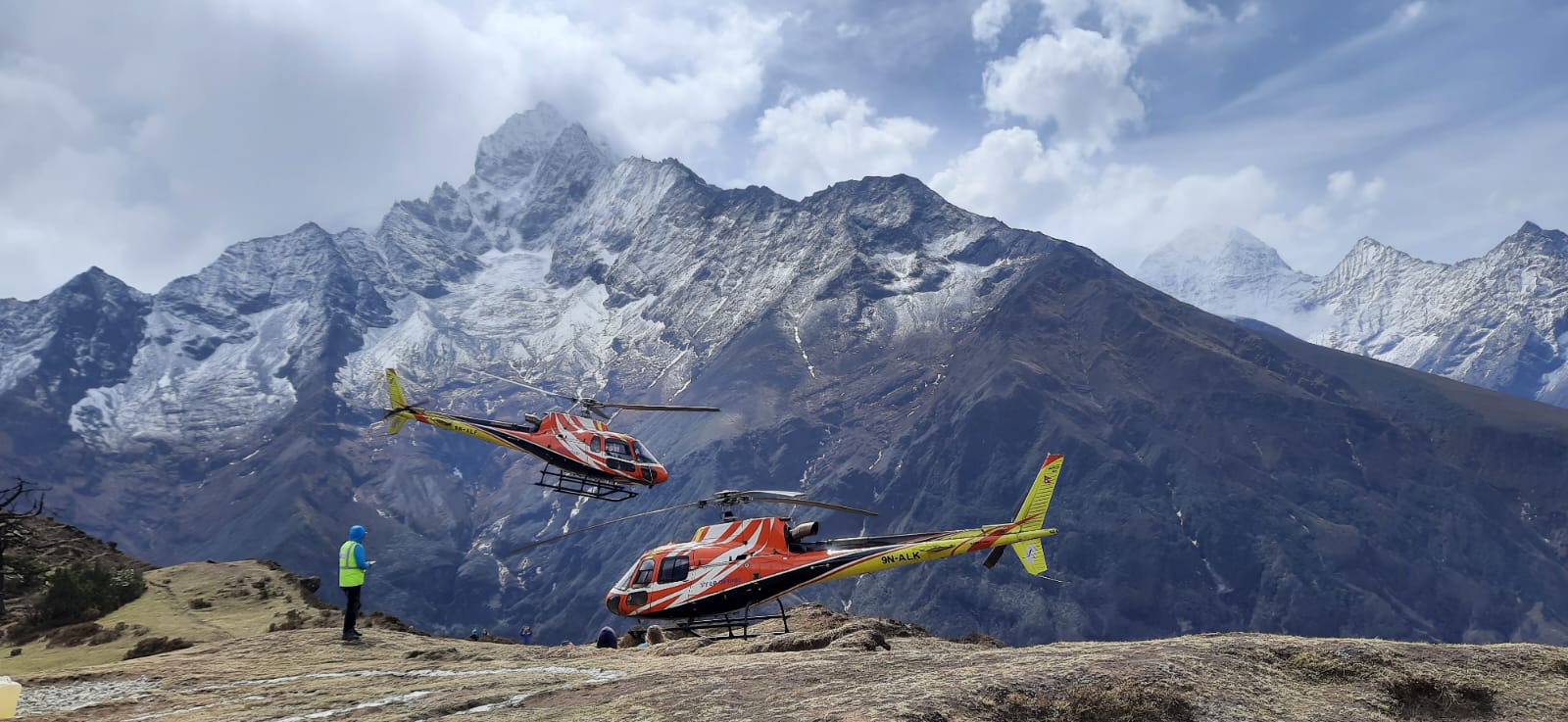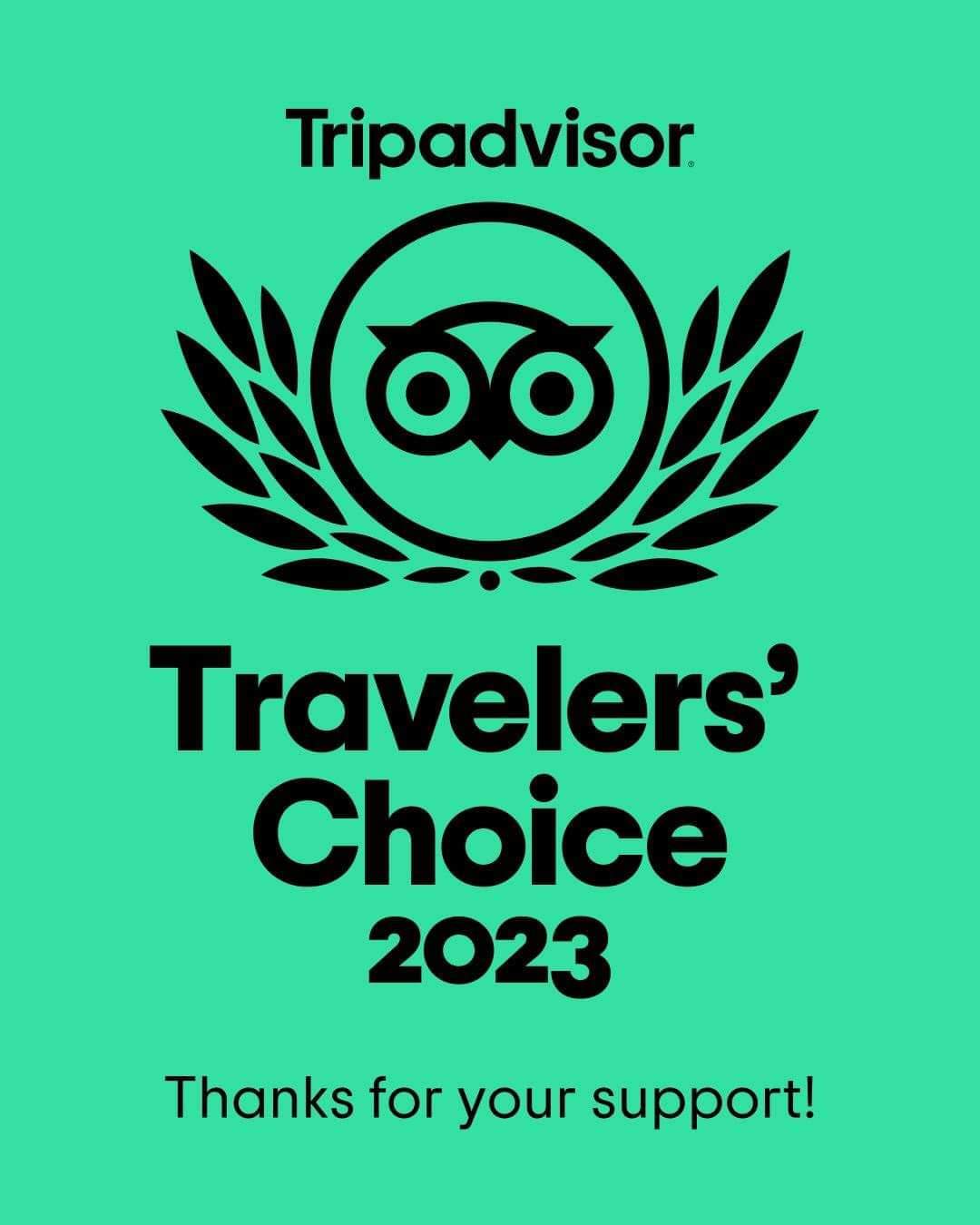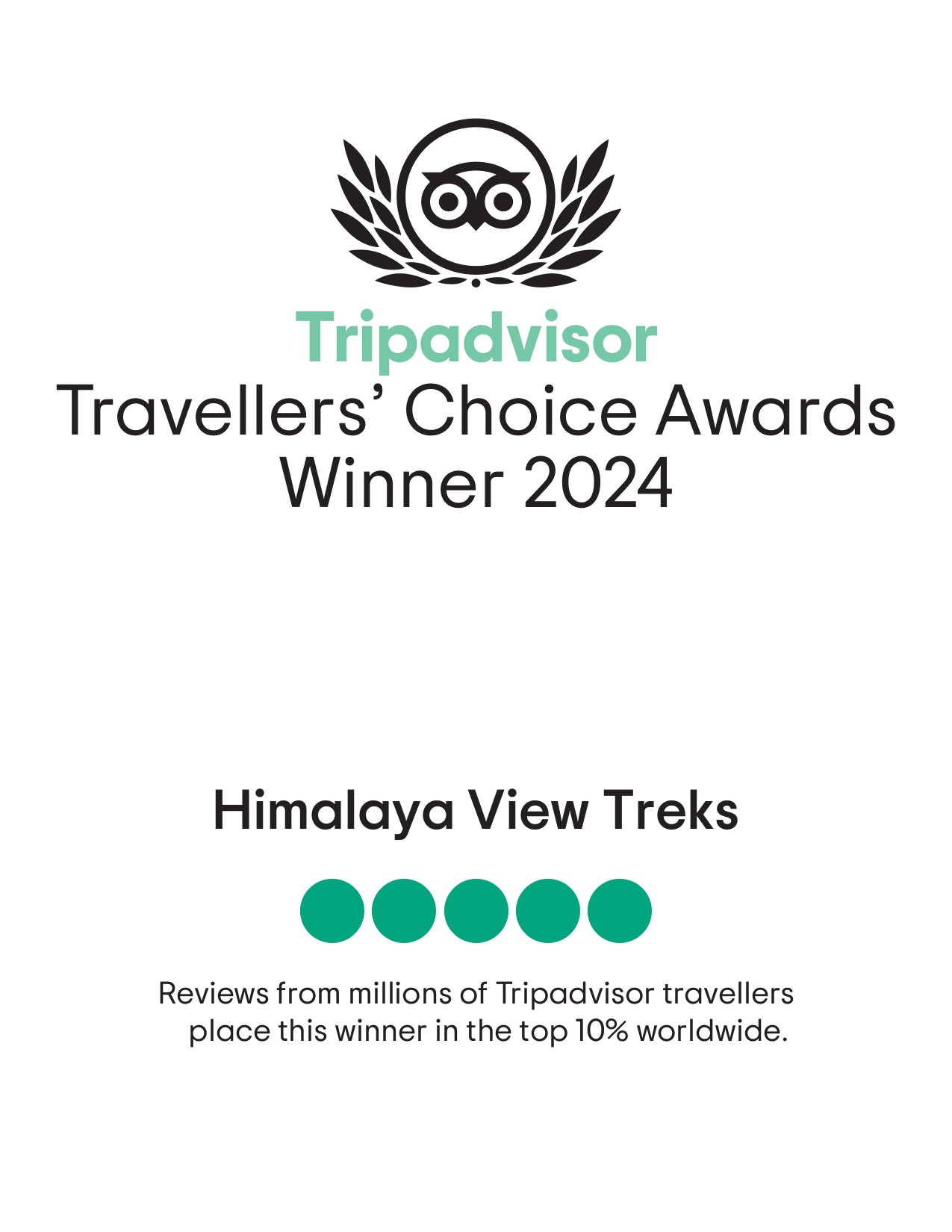Trip overview
7 Days Everest Base Camp Trek Helicopter From Gorkshep to Lukla
The Everest Base camp 7 days Trek by helicopter return from Gorkshep to Lukla. This is an interesting short trekking package. It is a combination of an EBC Trekking and a Helicopter tour. Therefore, you can call it a Short Everest Base Camp Trek or a helicopter back trek from Gorkshep. Trekking to Everest knits together a fantastic itinerary for the overall experience of Khumbu. The trip offers bird’s eye view as well as land view of EBC Trail.
Fly to Lukla by airplane and trek to Everest base camp via Namche Tengboche, Dingboche to Gorakshep, and return flight back to Lukla by Helicopter from Everest Base Camp take 7 days. Everest base camp trek return by helicopter is just 7 days. which is one of the short and best tours in Nepal. if you have a short holiday then the Everest Helicopter tour might meet your timeframe. The start of the journey is similar to every regular Everest Trekking. Early in the morning trekkers reach the Lukla via flight and meet the crew members. Trekkers trek through Phakding, Namche Bazaar, Dingboche, Lobuche and Gorakshep before reaching Everest Base Camp (5364 m).
Experience regular trekking while ascending. Relish the time you are in Everest Base Camp. Moreover, get the astounding sunrise experience from the top of Kalapathar (5545 m). The scenery of the mountains from the top of Kalapathar is absolutely spectacular. Moreover, the Everest Base Camp Trek Return fly-back by chopper package offers chance to witness lofty mountains. You can get scenery of more than 2 dozen mountains.
7 Days Everest Base Camp Trek by Helicopter Back to Lukla
Doing a trek in this way is very safe as well. You don’t have to be concern about the chances of altitude sickness. Additionally, you will have a private helicopter ride. The cost of the trip is very worthwhile. There isn’t much difference in the price of the Everest Base Camp Trek and the Everest Heli trek. Therefore, take it. The itinerary of the Everest Heli Trek is simple and enticing. Once you have covered the trail, the chopper will fly you back to Lukla. During this flight, you can observe the alluring landscape, villages and forests of the Khumbu region. Moreover, it is shorter than a regular trek too.
Are You Already in Nepal?
If you are already in Kathmandu or Pokhara and seeking to Hire a guide/porter or tour/trekking packages then you can directly contact an expert via WhatsApp at +9779841146306 Or visit our office:- Himalaya View Treks Kaldhara Marg, Kathmandu 44600, in front of the Kathmandu sport climbing center 1st-floor building.
Secure your trip with Himalaya View Treks! Click here for booking Everest Base Camp 7 days Trek for the upcoming 2023/24 March/April/May or Oct/Nov/Dec. Furthermore queries, you can directly contact us via email inquiry at singbir@yahoo.com
Short Itinerary
7 Days Everest Base camp trek - Helicopter return from Base Camp to Lukla
Day 1: Fly to Lukla from Kathmandu, trek to Phakding walking distance of 6.2 km (2/3 hours) 2610 M / 8,664 feet)
Day 2: Phakding to Namche walking distance is 7.4 km (5-6 Hours) 3,440m/11,283ft
Day 3: Trek From Namche Bazaar to Pangboche walking distance- of 9.1 km (5 to 6 hours) 3930m/12890ft
Day 4: Trek From Pangboche to Dukla walking distance is 7.9 km (7 hours)4,680m/15,435ft
Day 5: Trek From Dukla to Gorakshep walking distance is 6 km (6-8 hours) (Gorekshep) 5180m/16,994ft & Everest Base Camp 5364m/17598
Day 6: Gorakshep to Kalapatthar hike)5,545m/18,192ft (Kalapathar) return by Helicopter to Lukla
Day 7: Fly back to Kathmandu, Altitude of Kathmandu (1300m) (35 minutes). We woke up early for our flight back to Kathmandu.
Included
- Airport pickup and drop as per client’s arrival and departure date
- Hotel- domestic airport- hotel by car/ van, depend on group sizes
- Domestic flights (Kathmandu - Lukla - Kathmandu) tickets including airport taxes
- Helicopter fees from Base Camp to Lukla
- All meals (Breakfast, lunch, and dinner) during your Everest base camp Trek
- 6 nights Hotel Accommodation during EBC Trek
- Government licensed holder, fluent English Speaking, Familiar HVT guide
- One assistant guide if Group sizes is more than 10 trekkers)
- Strong local Porters for Carry trekker’s luggage one porter every 2 trekkers
- Guide and porter wages including their meals, accommodation, and Salary
- Staff insurance including medication coverage
- Water purification drop or tablets for safe drinking water
- Sagarmatha National Park entry permit fee
- Khumbu Pashang Lhamu Rural Municipality permits fees
- Seasonal fresh fruits every day during your Everest Base Camp trek
- Oximeter to measure Pulse and oxygen level
- Company T-shirt as a Souvenirs, and duffle bag if needed
- Local government, taxes, including official Service Charge
- Trip completion Certificate
Not Included
- Hotel accommodation and meals In Kathmandu
- Personal expense (shopping, snacks, boil bottle water, hot (tea, coffee) and cold drinks, hot shower, alcohol, Wi-Fi, telephone call, battery charge fee during the Everest base camp Trek)
- Personal clothing and trekking gear
- Personal travel insurance including evacuation coverage (compulsory) up to 6000m)
- Additional costs if delays flights and outside the itinerary
- All the costs and expenses which are not mentioned in includes list.
- Tips for guide and porters, in end of the treks
Useful Info
7 Days Everest Base Camp Trek Key Highlights:
- Trek to the iconic Everest Base Camp with support from our experienced team of guides, crew, and porters who simply love what they do.
- Climb Kalapathar (5545m) for grandstand views of Everest, Lhotse, Nuptse, and surrounding peaks. The sights hereabouts are some of the best in the world.
- Experience the breathtaking mountain flight to Lukla, you’ll love it.
- Immerse yourself in colorful ancient Kathmandu with an optional s/seeing
- Experience the warmth and hospitality of the Sherpa people. Interact with them to learn of their lifestyles & traditions as they survive in harsh conditions for all of their lives.
Is 7 Days Everest Base Camp your ideal trek?
Trekking in the Everest region is all about attitude. By its very nature adventure travel involves that you be prepared for the unexpected. In far-flung and developing countries do not expect the standards you are used to at home. Remote areas are sometimes unpredictable and itineraries may be altered. To enjoy your trip and get the most out of your adventure it is important that you are flexible, positive, and eager to take on all the challenges that arise from your Everest base camp odyssey. If you’re a greenhorn in the wilderness world then this trek would be ideal for you.
To truly enjoy this trip, you should be pretty habituated to walking 4-6 hours each day for several days on the go while some days will be relatively longer. We encourage you to walk at a pace that suits you without any rush whatsoever. This is a key aspect of enjoying such trips in the planet’s most popular region. You ought to be physically fit and an active walker to get the best of this classic mountainous journey to the south side of the mighty Everest.
General information important to this trip:
Difficulty levels
TREKKING AT HIGH ALTITUDES (over 3500m)
This trip includes strenuous trekking at altitudes of over 3500m. For us, altitude is a very serious issue, a result that has kept our records clean making us one of the best adventure operators in Nepal for over 30 years of operating treks in the region. Our trekking guests must be in excellent health and have high fitness levels to attempt this trip, as well as be committed to training to ensure you are suitably physically prepared for the tough challenges that go above 4500m.
Altitude sickness is a risk for anyone, including on the Annapurna, Langtang, and Everest Base Camp treks. Please make sure you familiarise yourself with signs and symptoms before you depart and monitor your own health during your trek, without letting it worry you.
We advise all our guests to undergo a thorough medical with their personal physician before they embark on this trip.
Participating in a group trip
When you travel with a group you will find much camaraderie and all the fun and also there’s bound to be some of the frustrations of traveling in a group. Your group mates will probably come from all corners of the world and you will come across a range of age groups too. We ask you to be understanding of the various needs and preferences of your group - patience with your fellow travelers is sometimes required for the benefit of everyone's travel experience. Remember too that you have responsibilities to the group. If you are requested to be at a place at a certain time, ensure you’re on time without keeping the rest of the group waiting. Experience has taught us often that the very best trips we operate are those where the chemistry within the group works well - this requires a ‘give a little take a little’ attitude effort on your part. For privacy reasons, we are unable to provide you with contact details and any personal information about your fellow travelers booked on your trip prior to departure.
TRAVELERS who prefer going SOLO:
Our group trips are generally planned for shared accommodation and don't involve single supplements. Single travelers share with people of the same gender in accommodation ranging from twin to multi-share. Some of our itineraries have accommodation booked on a mixed-gender share basis [for couples or trekkers known to each other prior to the trip]. On a selection of our trips, you have the option to pay a single supplement to ensure that you have your own accommodation (where available). Please note that this only applies to accommodation during the trek - pre-trip and post-trip accommodation will be booked on a single-room basis at your hotel in Kathmandu. We also have arrangements for guests who wish to trek completely solo out of the group.
Travel Insurance
when booking with Himalaya View Treks, it’s a condition upon joining any of our trips that all clients must be insured for comprehensive expenses that might incur due to medical issues or accidents (this includes air ambulance, helicopter rescue, and treatment costs). Please note that we don't arrange or sell insurance because such a system is not allowed in our country.
Our Cost versus the Experience
At Himalaya View Treks, we always go the mile to ensure our trekking guests get the best experiences of the trip with maximum comfort and safety on a ratio that goes beyond the cost that we charge for the trip. We provide a ‘no frills’ price with breakdowns to make sure our clients are getting the best for a cost that goes beyond all expectations
Tipping [an expectation on such risky arduous trips]
Tipping is very much part of the culture in Nepal and although entirely at your discretion, it is usually expected. Often people would like to tip in recognition of good service but are unsure how much would be appropriate in a foreign country - for this reason, we have listed guideline amounts below (these are intended as a guideline only and you may see fit to give more or less depending on the service that you have received).
For the tipping of your trek staff and your tour leader, we suggest passing an envelope for each staff member around the group so that everyone can put in what they feel comfortable with anonymously.
The following are guideline amounts received by each staff member from the group as a whole...
- Tour Leader: Rs30, 000 - 35,000 (usually tipped on the last night in Kathmandu)
- Your trekking crew (tips are usually given on the last evening of the trek in Lukla):
- Head Trekking Guide and Assistant Guides: Rs20, 000 - 25,000 for each guide
- Trek Porters/yak men: Rs10, 000 for each porter or yak man
Acute Mountain Sickness [AMS]
When we ascend above 2500 meters our bodies have to acclimatize to the decreasing amount of oxygen available. So, to allow our bodies to adjust we have designed our treks in ways that help you ascend slowly, allowing acclimatization to occur when you go above the tree lines where the air is thinner. However, during the acclimatization process, you may experience some of the following symptoms.
- Headache
- Tiredness
- Disturbed sleep patterns
- Loss of appetite/nausea
- Shortness of breath
- Cough
- Palpitation
- Swelling of the hands and face
But if you feel such symptoms don’t let it worry because it’s normal. Individuals acclimatize at different rates. Some may experience symptoms, some may not. Your best strategy is to take your time and drink plenty of water. These symptoms may not indicate the onset of A.M.S.; if you experience them, it does not necessarily mean that you should not continue. All our group leaders have extensive first-aid training and we urge you to communicate with the group leader at all times should you believe you have any symptoms in order that we can effectively monitor your symptoms as you go higher. The only cure for Acute Mountain Sickness is to descend. Please note, that your group leader has ultimate responsibility and may ask you to descend if symptoms persist. As a last resort, if matters grow from bad to worse, we always have a helicopter on standby for immediate evacuation.
A Typical Day on the Everest Base Camp Trek
A typical day on the trail begins with a wake-up call at around 6 AM by your guide. Freshen up and get ready. Pack your belongings and head to the dining area for breakfast by 7 AM. Check your luggage for the final time and fill your water bottle before you hit the trail by 8 AM, along with your guide.
To avoid walking in the heat and enjoy clear mountain views, you make an early start. En route, there will be short breaks to enjoy the views and take photographs. You haul up for lunch at a local teahouse around noon or mid-day. After a quick rest of about an hour or 40 minutes, you get back on the trail and continue till you reach your overnight stop.
Upon reaching the stop for the night, you head to your teahouse, check-in, and have some rest. Tea with some light refreshments (cookies or biscuits) will be served at 5 PM. As the rooms are not insulated, you can warm yourself with the heater or stove in the communal area.
Exchange stories or play cards with other trekkers and sherpas till dinner is served (around 7 PM). After dinner, your guide will brief you about the next day’s trek – the route you will take, the difficulties, where you will stop for lunch, etc. Afterward, retire for the night and have a well-deserved rest.
On average, you may have to walk 6 to 7 hours daily. The trek to Phakding is the shortest and the easiest, while the hike to Everest Base Camp from Lobuche on the 5th day could be your toughest. On Day 6, a hike to Kalapathar for the sunrise view is scheduled. So you will have to wake up before 4 AM to reach Kalapathar before sunrise. Your guide will share the details regarding the hike during the after-dinner briefing on Day 6. after Breakfast Helicopter back to Lukla.





